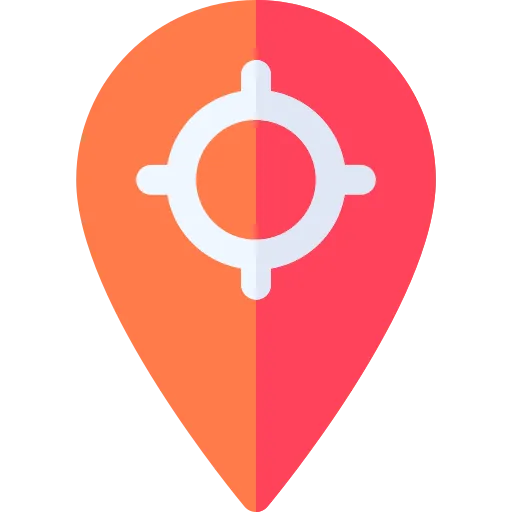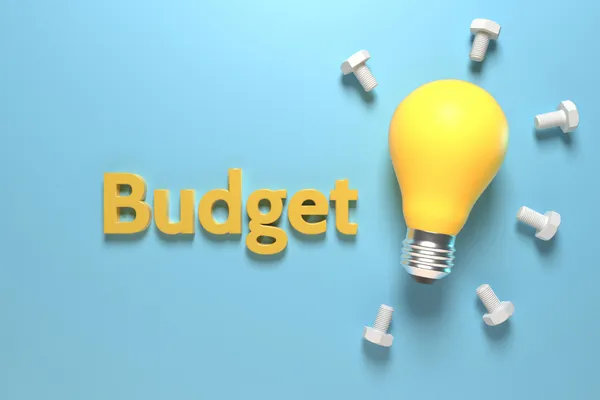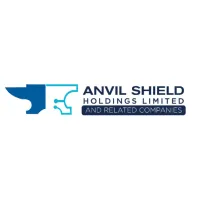Contact Us
Creating a borderless world of finanical services: your one-stop shop for financial solutions
Ensuring inclusion and growth by bridging financial & Tech gaps for Micro, Small & Medium Enterprises (MSMEs).
What we offer:
We provide a comprehensive suite of services — from financial solutions, insurance, and payment systems to money transfers, tracking & logistics monitoring — all seamlessly integrated and secured with blockchain technology. With Bitcoin and other digital assets at the core, we’re reshaping how Africa transacts, insures, and moves value across borders.

Money Lending
Financial empowerment for you and your business through quick secured loans.

Tracking & Logistics
keep track of all your assets and your
e-commerce business.

Payment Platform
Enjoy seamless payment solutions and pay suppliers on time anytime anywhere.

Remittance
Send money internationally to facilitate trade

Insurance
Secure and protect yourself, your family, and your business.

Digital Investment
invest in digitised assets such as Real Estate, Bonds, and Gold within the digital economy.

Our story
Anvil Shield Holdings Ltd story begins in 2009. When access to finances or capital for small businesses and solopreneurs in Kenya was a backbreaking affair.
To fill this gap Ngao Credit Limited was born to provide financial empowerment to the underserved. We made it possible for small businesses to access quick secured loans to expand and keep operations running.
Grow with Us
In line with the dream of offering financial empowerment, we have grown to include 4 other subsidiaries: Upesi Money Transfer, Alphabloq, Lucent Insurance, Tracking Hub Ltd, and Switchlink Africa.

How to create Your First Business Budget
If you don't get serious about your money, you will never have serious money. —Grant Cardone
Budget Planning Simplified For Small Business Owners In Africa
Welcome to our simplified budget planning post designed to help entrepreneurs and small business owners take control of their finances.
You clicked on our headline and landed on this article which indicates a few things. First, you're a small business owner in Africa who wants to succeed.
Second, you're committed to mastering the money game.
And third, you've got questions.
Questions like:
What is budgeting, and why is it so crucial to a small business owner in Africa like me?
Is there a simple way to set a budget?
Are there proven budgeting approaches or types that are easy to adopt?
Guess what? We've got those answers for you and then some.
Here you'll learn the importance of making budgets and how to create a simple, accurate, and reasonable budget as a small business owner in Africa.
We also have a free budget template for you to plug into your business instantly. Feel free to download and use it.
The thin line between failure and the success of a business is accountability.
If you create a strong accountability system for your business, your chances of success increase. Given all the different costs, income, taxes, profits, overdue, and losses that come with business, it's going to be impossible to know how money is moving.
In business, accountability can be done in one of two ways.
The first, which we don't recommend, is to "wing it." You can attempt to keep a record in your head. Good luck with that, though...
The second option, which we definitely recommend, is to keep a written record of EVERYTHING. You can have a concrete handwritten or typed note to keep track of all your expenses and profits.
Now, with accountability comes budget or budgeting.
What is budgeting?
In simple business terms, budgeting involves creating a spending plan for your small business based on income and expenses. It identifies capital, estimates spending, and helps you predict revenue.
A budget outlines your spending in the next few days, weeks, or years. It also includes your business forecast on the Profit you predict your SME to make over a specified time period in the future.
Why is Making a Budget for Your Small Business So Important?
Whether you should create a budget or not for your small business depends on how badly you want to grow.
Answer the following questions truthfully.
🔳 Do I want to keep my business at its current level, or do I want more?
🔳 Do I want more control over my cash flow and expenses?
🔳 Do I want more profit and better margins in my business?
A budget is vital for your business if you answered yes to at least two of the three questions.
🔻🔻🔻 Download your free budgeting template now
Okay, if you're still reading, we're going to assume you want to take your small business to the next level. In that case, you have to learn to make an accurate and reasonable budget.
This budget will be your guide and a yardstick for setting up financial goals so you can advance to the levels and heights you've always dreamt about.
5 Steps for Making an Accurate Budget for a Small Business in Africa
Let's discuss the simple steps you can take to create an accurate budget for your business, regardless of size.
Step #1: Know Your Total Revenue
You need to know how much revenue is coming into the business.
Revenue is the total inflow of money your small business makes within a given period. If you've not been recording this data in the past, sit down with a pen and paper and write down your sales in the previous months.
Go as far back as possible, depending on the age of your business. What if the business is new?
Work with what you've got. Reflect back on the sales you've made since launch. How much did you sell last Monday? What about last month? Did you sell more during a particular holiday or festive season?
With this data, you can start to see a pattern of your sales and how much income the business generates. The more information you can draw out, the easier it will be to make future predictions.
Pro tip: Pen down your predicted total income for the next 6 months, and you will be ready for the next step.
Step #2: Know Your Business Expenses and Costs
The next step involves determining projected spending. In other words, you want to predict business-related expenses and additional costs over the next six months.
We suggest you categorise your costs from highest to lowest priority.
Example:
🔴 High priority - Marketing & Advertising, building rent, internet services, insurance, electricity, water, gas, and other utility bills, as well as salaries where applicable.
🟠 Medium priority - subscriptions, customer gift cards, and other technologies.
🟡 Low priority - Materials and off payments to help enhance your services or store.
Identify the non-essentials. Most of these will fall under the low-priority category. Once you know your expenses and costs, you must prioritise expenditures.
You should also determine the revenue-generating expenditures and their overlapping expenses.
For example, suppose you operate a fleet of school buses. In that case, vehicle maintenance, tracking software, and fuel purchase must be a priority to ensure uninterrupted operations and happy parents.
If you attempt to cut costs by laying off several drivers or skipping vehicle maintenance, the business will be compromised.
So, factor in all mitigating circumstances attached to your prioritisation process and consider long-term implications.
Step #3: Know the Exact Profit You Are Making
With your revenue and expenses clearly identified, it's time to calculate profit.
In calculating your Profit, deduct your expenses or the cost of doing the business from your total revenue.
Profit = Revenue - Expenses
If you find your profit increases month over month, that indicates growth. It also enables you to project how much profit you're likely to make in a year, allowing you to decide how much to invest in each functional area of the business.
Step #4: Draft out a Balance Sheet
After calculating your Profit (we hope it turned out positive), you should take it a step further. As a small business owner looking to grow your company, it's good to know its value in the marketplace.
This is where things get interesting. A balance sheet gives you a snapshot of what your business owns, i.e., assets, and what it owes, i.e., liabilities, at a specific point in time. To draft your first balance sheet, you'll need to gather the following information:
Assets - cash, equipment, goodwill, stock, money owed to the business
Liabilities - credit card debts, tax liabilities, loans, money owed to vendors/suppliers
Owner's equity - the amount left after liabilities are deducted from assets
By drafting your balance sheet, you can determine the marketplace value of your small business.
Doing these calculations lets you know the current standing of your business. It also lets you know if the business is worth doing at all.
Step #5: Decide How You Want to Spend Your Profit on your Business
Finally, you want to determine how to spend your current money.
This is where you decide the percentage you want to set aside for
☑️ Reinvesting into the business,
☑️ Expanding the business,
☑️ New investment opportunities, secondary spending,
☑️ Less important spending.
This stage helps you cut unnecessary expenses and focus on spending on things that will help grow your small or medium-sized enterprises.
How to Know If Your Budget is Good Enough
If, after studying your budget for several months, you realise that you are getting the best business results, then you are on the right track. If you notice some red flags and stagnation, it's time to take action and make changes.
A good budget will help you prioritise, maximise business profitability, and afford you a chance to save for rainy days.
Popular Types of Budgeting Methods
There's no one-size-fits-all solution when it comes to budgeting. However, some methods are more popular than others. We'll share three that are recommended by financial experts.
Still, we highly suggest you speak with an accountant to determine which is best for your small business. If you're just getting started and haven't got the resources to hire financial experts, pick the one that feels easy to implement. The most important thing is to stick to your chosen option for at least 6 months.
Zero-based budgeting
This is the best method if you want to keep expenses as low as possible. Unfortunately, it is time-consuming because it requires the business owner to itemise each expense onto a list and go through each one to justify purchasing and budget.
Zero-based budgeting assumes that everything starts off at zero. Every cost must be justified going up.
Great for: A small business owner or entrepreneur trying to survive and make ends meet.
Incremental budgeting
This method is easy for any small business owner to implement. Incremental budgeting takes last year's figures as a starting point for the new year's budget.
There's no set formula for incremental budgeting. It involves adjusting the existing budget in small increments according to the overall growth or decline of the company.
For example, suppose your small business experienced a 10% dip in sales in 2022, which means you would reduce your budget by 10% in the new budget for 2023.
Just follow the assumption that the expenditures that occurred in the previous fiscal period will be the starting point for the new fiscal period.
Great for: Established small businesses in Africa with a solid historical record of profits and losses.
Flexible budgeting
The name spells it all in this method. A flexible budget goes with the ebbs and flows of a business.
Great for: Any small business owner who experiences significant highs or lows during peak seasons. It's also great for new businesses that aren't yet financially stable.
Conclusion
Some African entrepreneurs and small business owners still don't understand the importance of budgeting. Others might even call it a waste of time especially if they are new to business.
We are not exactly a continent that prioritises financial literacy and very few African households normalise the concept of budgeting.
Many, therefore, grow up without a keen understanding of why budgets matter in business and in life. What these people may not realise is that growth is impossible without accountability.
Even if you have plenty of startup capital, money will quickly disappear if unaccounted for. Spending on irrelevant or non-essential goods and services or poorly tracking cash flow and expenditure is a fast lane to failure.
So, prioritise budgeting whether you're a self-funded or VC-funded small business owner.
The better you get at tracking, monitoring, planning, and predicting the movement of money, the easier it will be to reduce expenses, increase profitability and grow your investments.
Ready to create your first small business budget plan? Download and use our free budgeting template.

© Copyright 2026. anvilshieldgroup ltd All rights reserved.







